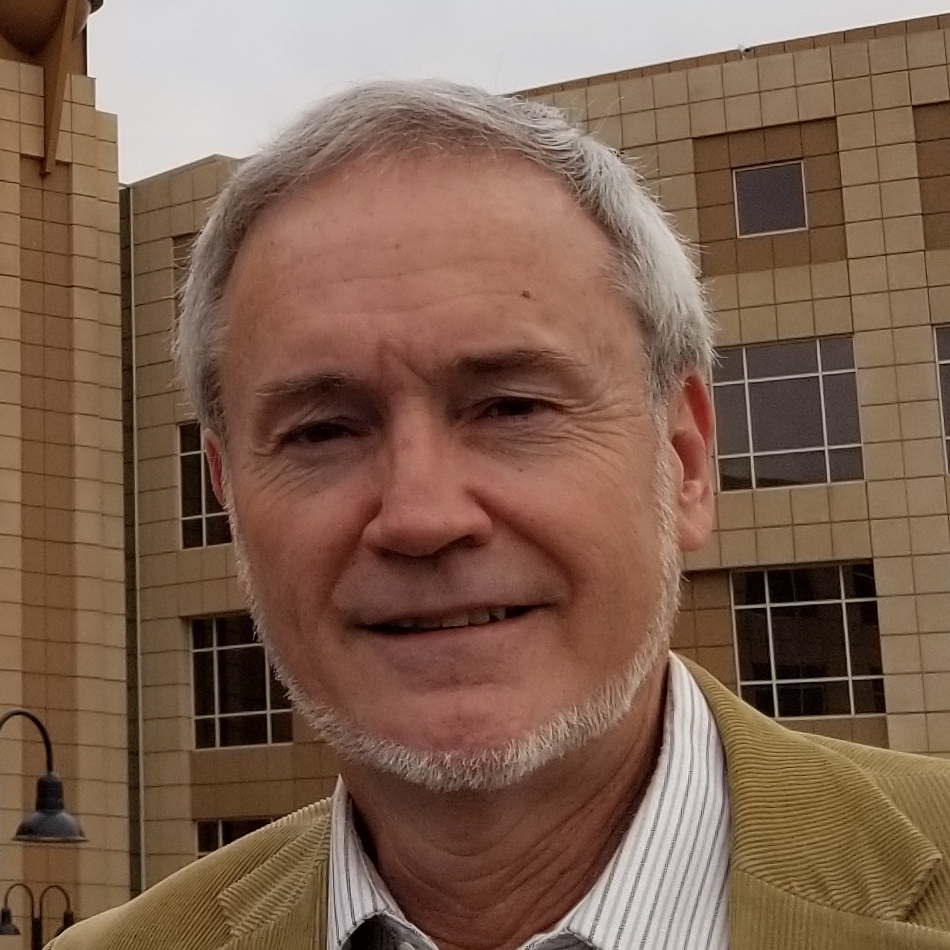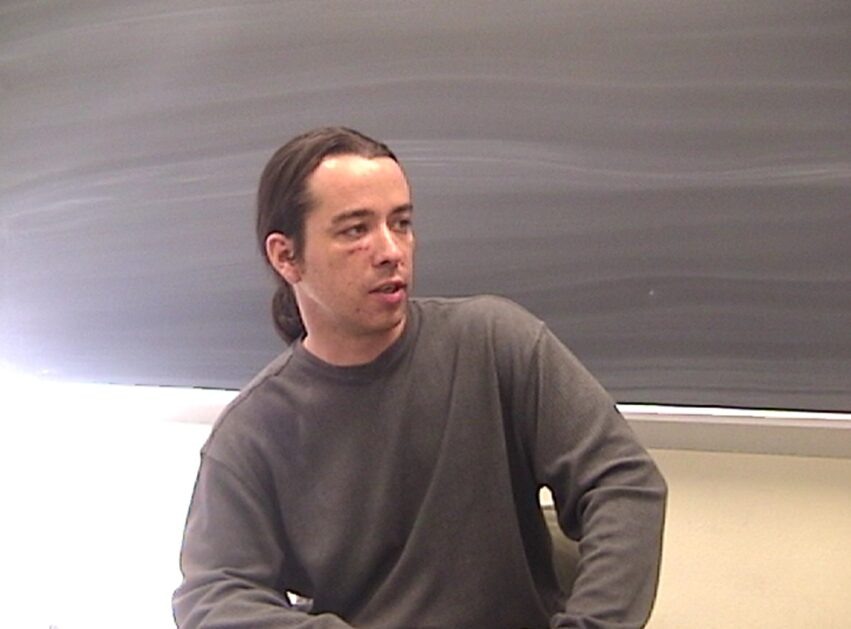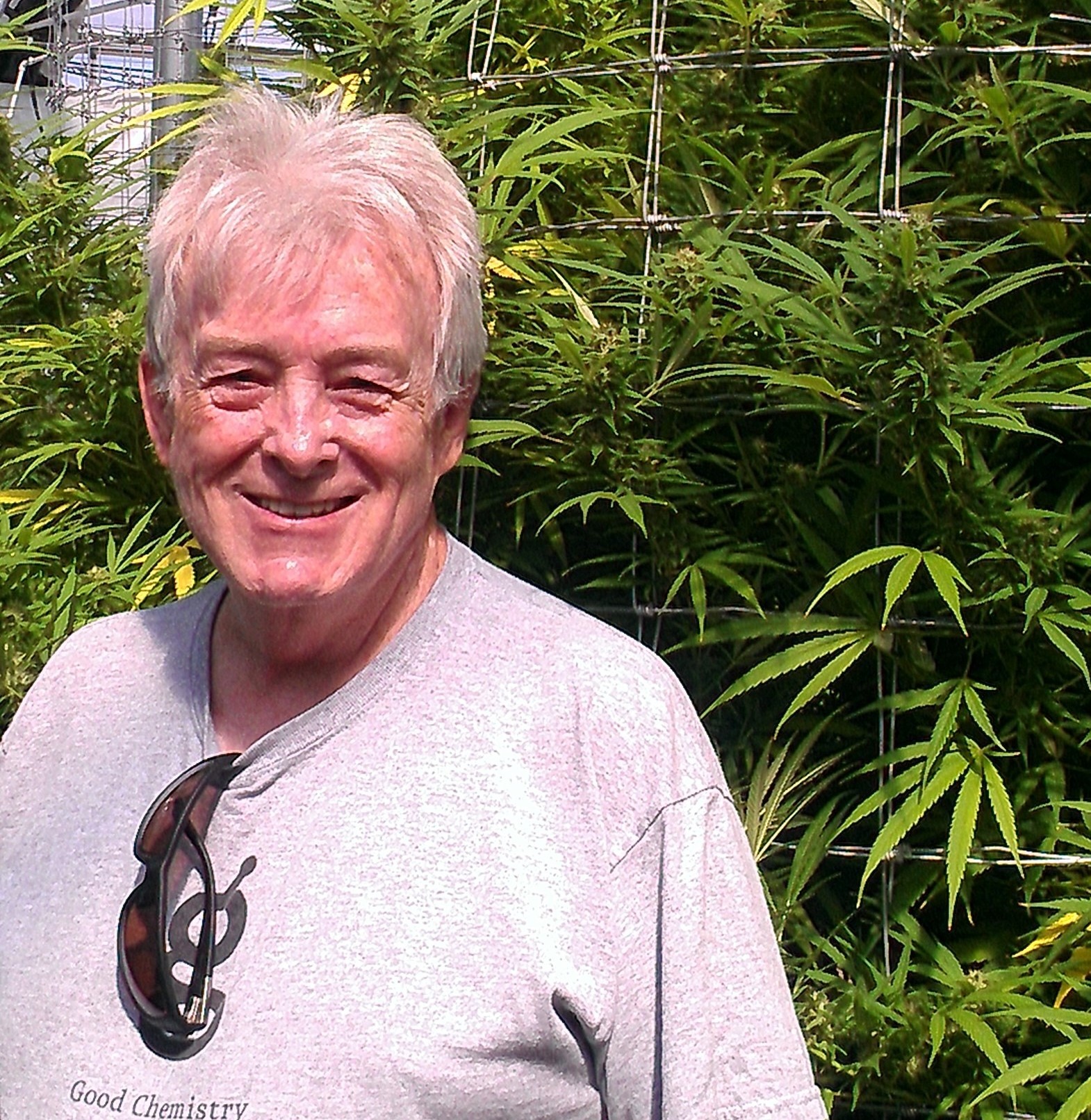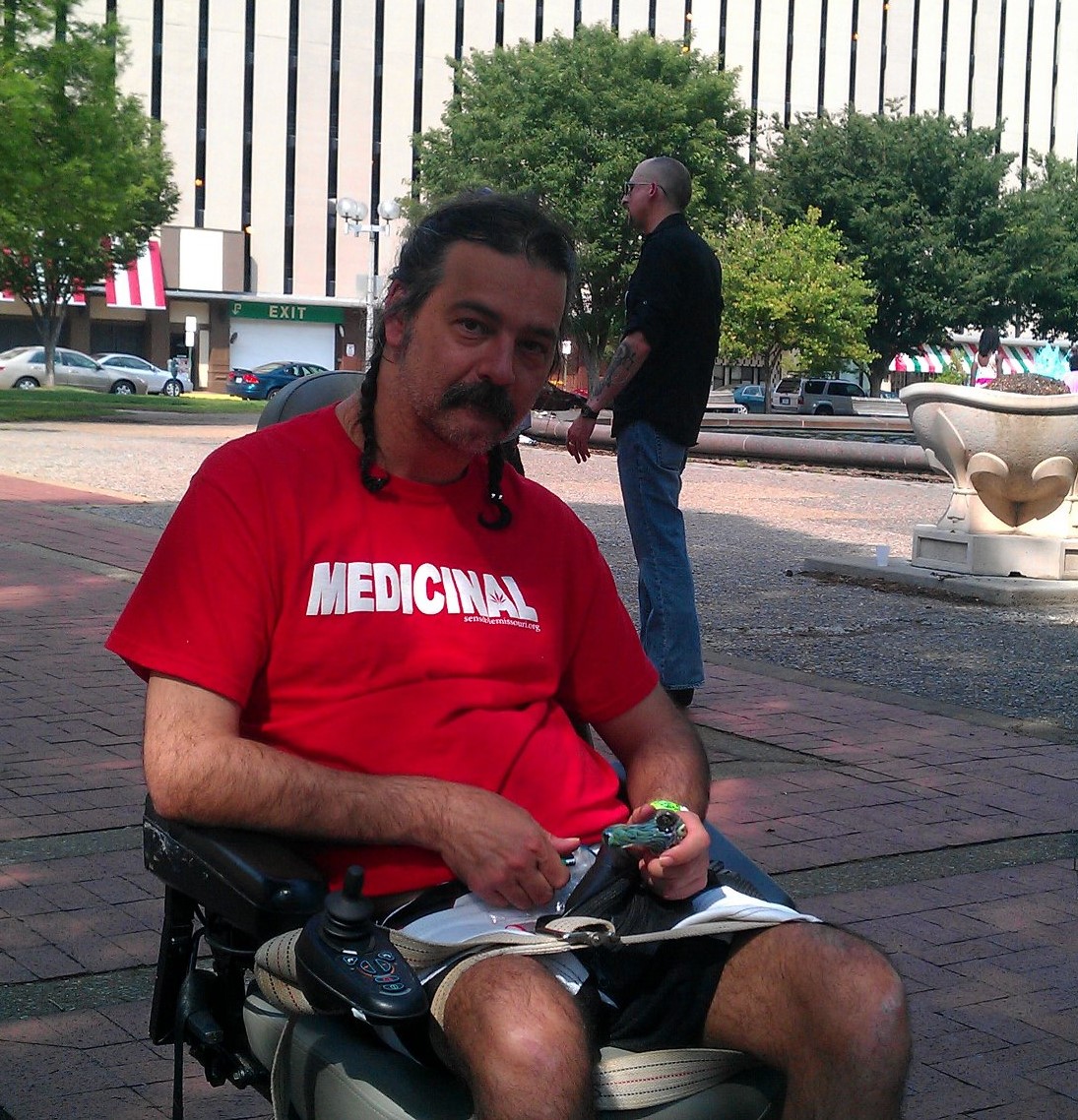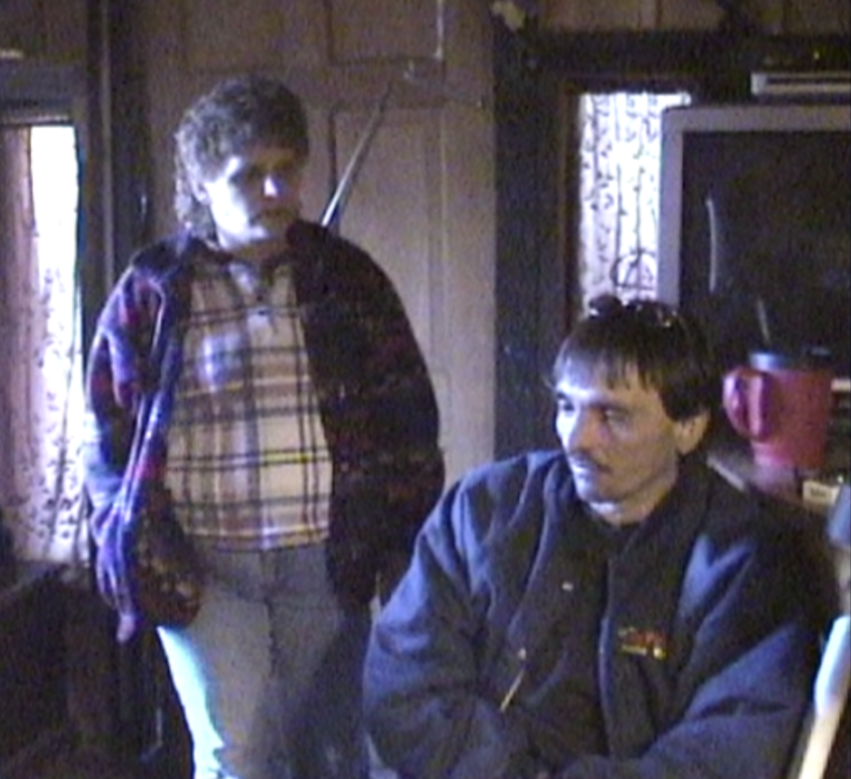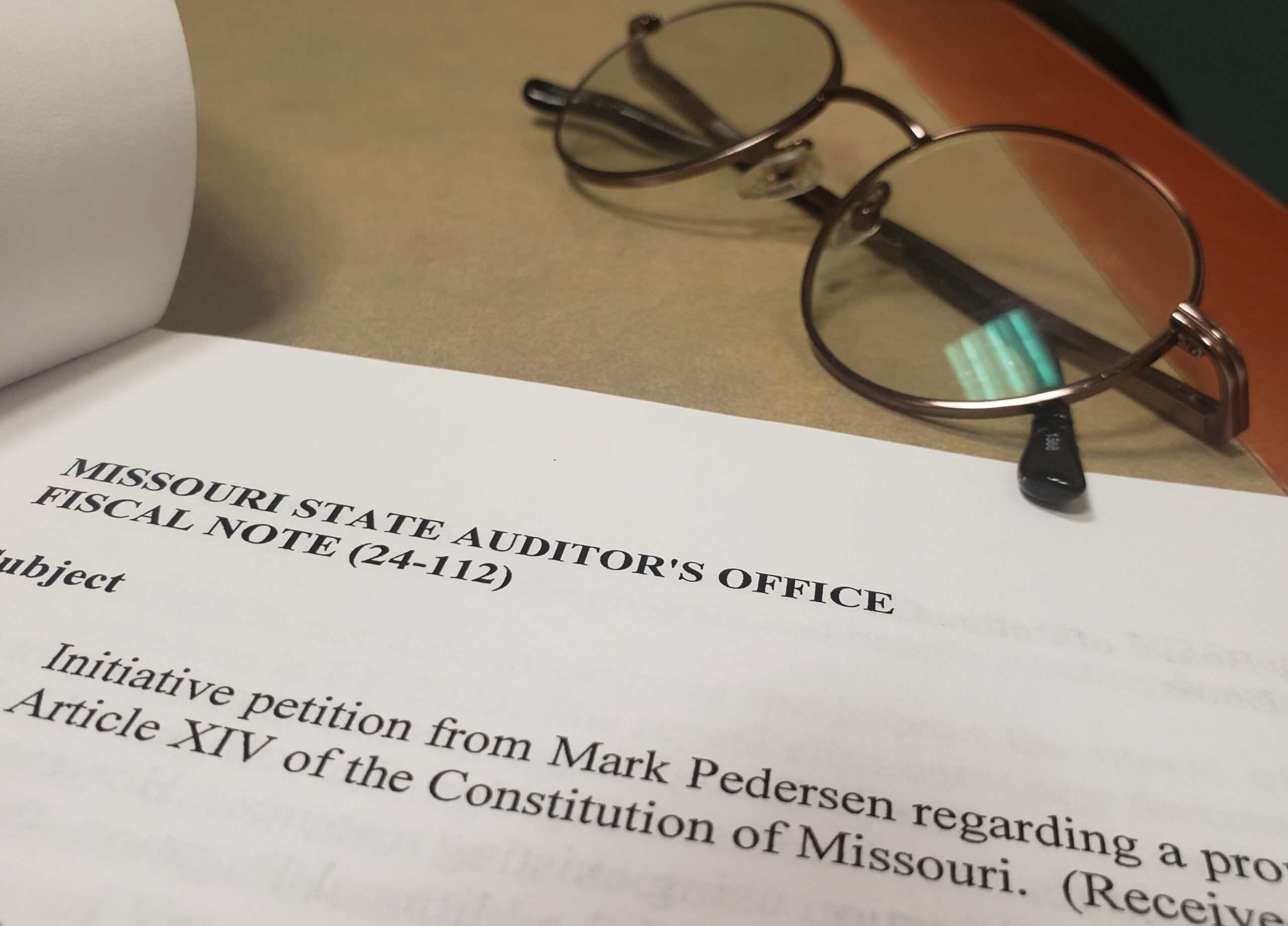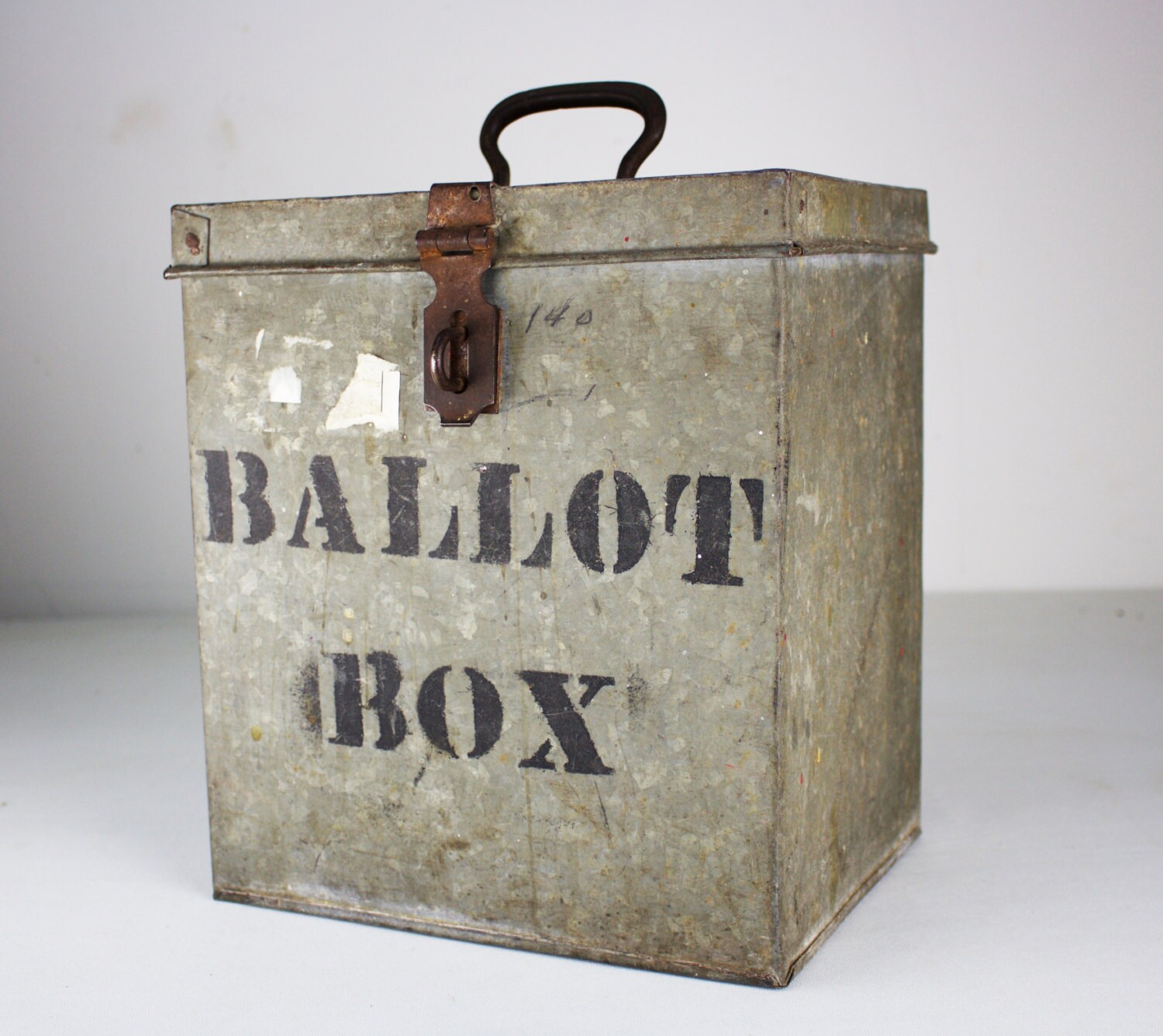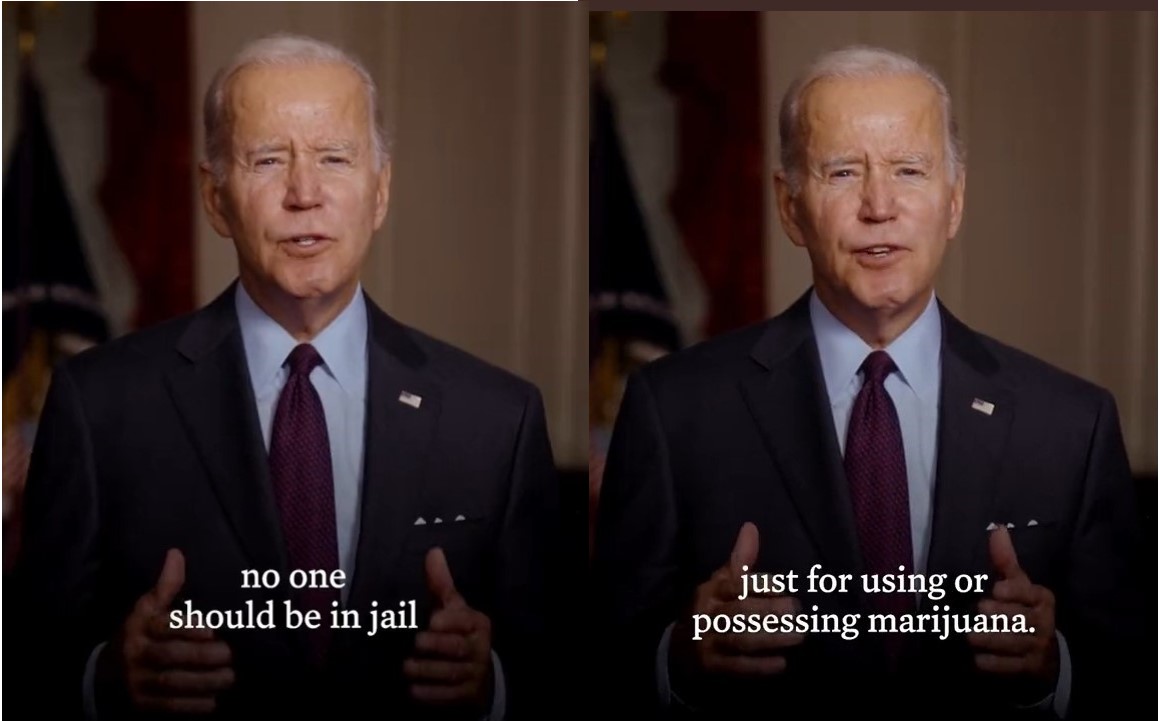My interview with Joseph Blundell of Cliff Village, Missouri
By Mark D. Pedersen
I first interviewed Joe at the Norml Drug Reform Conference on the University of Missouri Campus in Columbia, Missouri.
Joe drew National attention when he helped pass a medical Cannabis ordinance for his city.
Joe was born in Gravette, Arkansas, though most of his early years were spent on a Blackberry farm in rural Missouri. Throughout his schooling, he lived in Pittsburgh, Kansas.
Joe: I attended the Pittsburgh High School back in the 90’s. It was known as ‘Pharmacy High’. There was a very good reason for it being given that name.”
Joe attended a number of universities. At the time of this interview, he was only one class away from six degrees – two Bachelors and four associates. Through it all, he maintained a 3.75 GPA. That would have been impressive for someone with half the challenges that Joe faced.
At the time of my interview with him, Joe was the presiding Mayor of Cliff Village, a small town on the southern outskirts of Joplin, Missouri. But he hadn’t always been so accomplished. His life had been quite different not so long ago, that is, until family and friends stepped in. Joe attributes an intervention one night in 2000 to changing the direction of his life. Through what he calls “a religious experience”, he was forced to confront his personal demons. His eyes were opened to a world so much greater than himself.

Joe gave away just about everything he owned and headed overseas, backpacking around Europe. He often pitched a tent alongside the road, exploring places like the Black Forest in Germany and old Moorish cannon towers along the Italian Riviera. He eventually made his way to London where he found work.
On the morning of October 15th, he was boarding a train in London. Unfortunately, he neglected the multitude of signs that warned him to “Mind the Gap”, the narrow space between the train doors and the tracks. In a split second, Joe slipped and was crushed under the weight of a 30,000-pound commuter train. It dragged him for about 75 yards before coming to a stop, with one of the massive wheels resting on his spine.
Joe laid there in utter horror at all that had transpired, gazing out at his fingers scattered before him like confetti, when one of the rescue crew finally reached him and stuttered the words,
“You’re…you’re still alive??”
Joe paused our interview, looking over at me knowingly. Then calmly: “I was completely conscious the whole time. I jokingly asked the emergency workers, ‘You guys gonna get me out from under here?’ Of course, they answered, ‘We’re gonna try.’”
As Joe continued, he described the flurry of activity as they assembled hydraulic jacks and a crane to lift the massive electric train engine off of him. But they could only get it so far. Since one of the wheels was lodged on the center of Joe’s spine between his T11 and T12 vertebrae, they would have to attempt a more invasive procedure. Expediency – no doubt – was of the essence.
To remove him from under the wheel, emergency workers were forced to deflate his lungs onsite, a scary and painful process involving the insertion of knives into each lung. He was instructed to let all the air out of his lungs just prior to them plunging in the knives. Blood flowed from his mouth and his sides as they quickly pulled him out from under the enormous wheel.
Joe: “Strangely though, I really didn’t think I was gonna die. Even as grim as the situation may have looked, I thought I was gonna be alright.”
Joe was kept alive for three days on life-support. Since he had a rare blood type, the hospital had to rely on donors from all over London.
After regaining consciousness, Joe’s doctor met with him and said, “Son, I don’t know why you’re alive. You should be in a lot of little bits somewhere…in the morgue or bio-waste or the landfill right now. I know one thing for sure. You’re being kept alive for some purpose. You need to go do something with your life; make something of yourself.
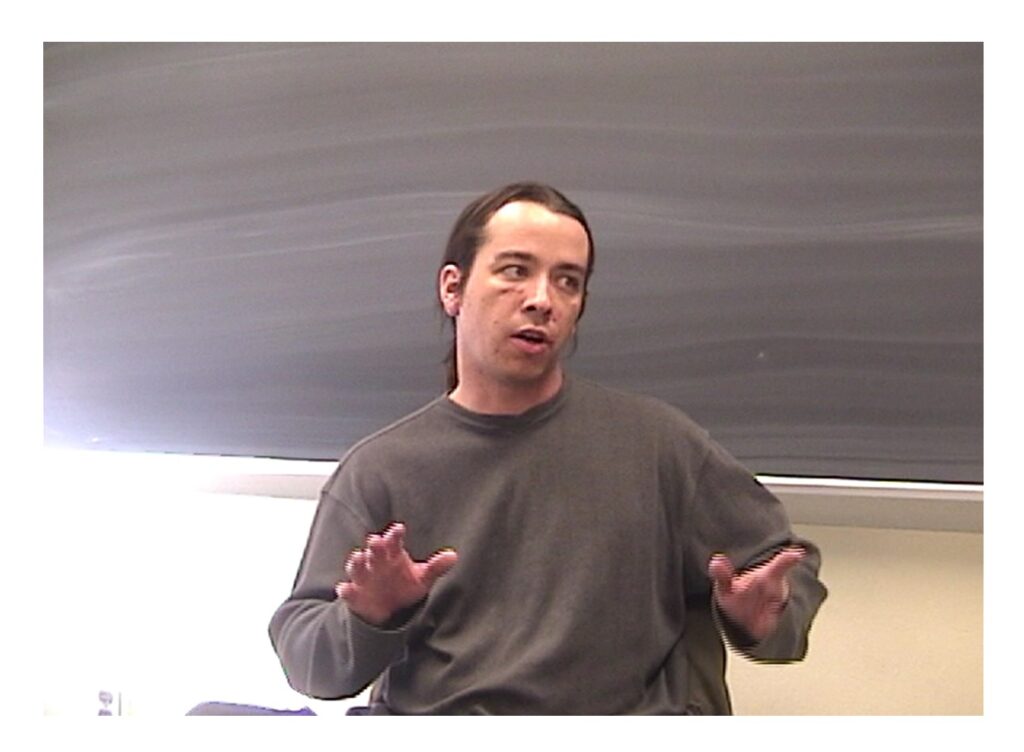
In the days and weeks following his accident, Joe learned first hand the stark differences in healthcare between the U.S. and the U.K.
Anyone who has suffered serious illness or injury here in the United States knows just how lacking healthcare is here, particularly for the poor and disabled. A nation that boasts of being the best at everything often leaves their most vulnerable to an uncertain and often miserable end. Such are the wealth disparities of this country.
Joe: “If I would have stayed over there, I would have received about a year’s worth of rehabilitation – just mandatory. And, they would have given me all of the equipment I needed, but instead, I came back to America. After two weeks in the hospital, since I didn’t have insurance, I was told to “Get out!”
…And quite literally, that was the sum total of rehabilitation that I received for my spinal cord injury.”
Unfortunately, after Joe was discharged from the hospital, that was when his real troubles began.
The doctors had prescribed for him Morphine, Codeine and Demerol. Because of these drugs, much of his first year and a half after his accident was “a nightmare of surreal proportions.”
The Morphine would leave him, as he put it, “drugged out of his head like a heroin addict, hallucinating to the textures in the sealing above my bed”.
The Codeine and Demerol would slow his digestive system to the point where being impacted became a weekly occurrence.
Joe: “A lot of people who are able-bodied that take opiates, don’t notice it (constipation), because the natural movement of their bodies (being physically active) helps stimulate their bowel movements.”
Being bound to a wheelchair without feeling in his lower extremities, Joe faced much the same challenges as one who is bedfast. With His forced sedentary lifestyle, Joe would often go five to six days without a bowel movement.
Peristalsis is the involuntary contraction and relaxation of the muscles that encompass the digestive tract, from the throat to the anus. Opiates impair the normal motility of the GI tract, decreasing the contractions, causing the expulsion of waste to be quite laborious, even impossible.
Joe: “Now, I can tell you, getting run over by a train – hurts.
Having someone stab knives into your sides – hurts.
Having three inch titanium screws drilled into your spinal column – hurts.
Not having a bowel movement for five or six days is the most excruciating pain you could possibly imagine. The pain – words cheapen how bad that hurts.“
Doctors are limited in what they can provide to offset the side effects of chronic opiate use. Too often, their unfortunate response is, “That’s jus the natural side effects of the drugs.”
Joe: “So, they gave me this stuff called, Magnesium Citrate. Essentially ‘Drano’ for the human body.”
The physician’s course of treatment was to allow his body to fill with fecal matter for five or six days and then give him Magnesium Citrate. He would then be forced to sit on a portable toilet for five to six hours as excrement flushed from his system. The doctors just didn’t seem concerned with the trauma this was causing Joe.
This is the daily experience for many of our disabled.
As Joe became more concerned with the drugs that he had been prescribed, one stood out. A blood thinner called “Warfarin”. He later found out that Warfarin was chemically identical to “rat poison”. Joe was coming to realize just how lethal conventional medicine really is.
Joe: “I asked the doctor why he was giving me rat poison. He replied, ‘It’s not rat poison.’ So, I said, ‘It’s no chemically different than rat poison.’ He answered, ‘It’s a very small amount.’ To which I responded, ‘It may be a small amount of rat poison, but, IT’S STILL RAT POISON!’”
This further inspired Joe to research some of the other drugs that he had been given, those causing him to be strung out so much of the time. He had always thought that Codeine was an Opiate derivative, but as he later learned, it hadn’t been based off of Opium since 1973. The pharmaceutical industry has been synthesizing it from “coal tar and petroleum” ever since.
Joe: “Now wait a minute. Hippocrates. The father of modern medicine. The doctors take the Hippocratic oath. Hippocrates was quoted as saying,
‘Let thy food be thy medicine and medicine be thy food.’
Joe went on… “I don’t eat coal. I don’t drink petroleum. Why are people that have taken this oath shoving coal, petroleum and rat poison down my throat? Then chasing it with a big bottle of Drano and saying this is ok. This is nonsense. This is anything BUT medicine. They’re poisoning people on a daily basis with ‘petroleum based medicine’.
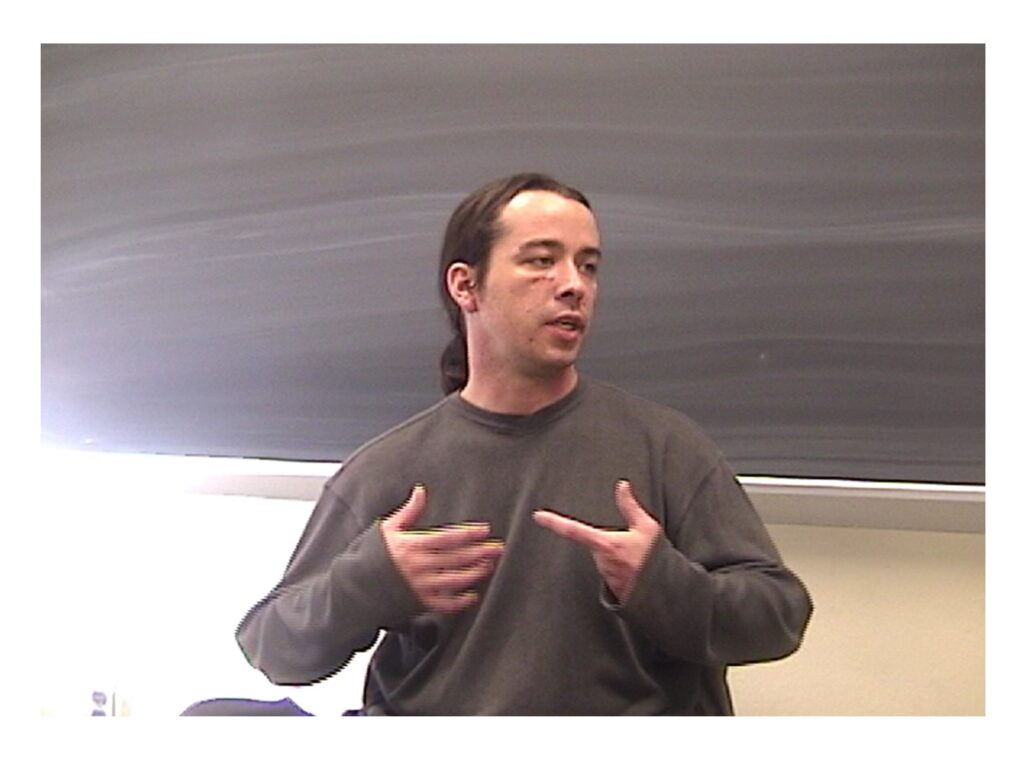
The Beginning of His Healing
Joe: “I’ve been asked what got me off the pharmaceutical drugs. Well, the neighbors had this Basset Hound that used to howl like crazy when it was left alone. I got tired of listening to its suffering in its four by eight foot cage, so I took it out one day for a walk. On the way back, I ran into another neighbor who said, ‘Why don’t I ever see you out in the village?’ And I said, ‘I’m strung out on Morphine, Codeine and Demerol.’ To that he said to me, ‘Hold on just a minute. Let me get something for you.’ He went into his house and came out with a joint. Handing it to me, he said, ‘Go… try this. See if it helps you.’
So, I took it back, I sat in my garden and I smoked it. Not only did the pain go away, but I didn’t feel drugged out of my gourd like I would on pharma.”
Mark: “Tell me about the pain.”
Joe: “Any time there is a weather change, any time I move around too much in my wheelchair…and just about any time I wake up in the morning, it’s excruciating.
Mark: “What kind of mobility do you have right now?”
Joe: (He motions a line across his abdomen with the edge of his palm) “T-11 and T-12…there’s nothing below that. Though, in the last year and a half, I’ve been getting the feeling back in my left leg and unfortunately, my left buttocks… I actually have a decubitus ulcer (bed sore) from all the time that I spent strung out on Morphine in my bed. It’s interesting from an anatomical and physiological standpoint. I can take my finger right now and touch bone. I can literally touch one of my bones through a hole in my body that big. It doesn’t feel like kittens purring. Sometimes I don’t feel it at all. Sometimes I feel so bad, I throw up.”
Mark: “How is Cannabis going to help that level of pain?”
Joe: “It just does. It completely helps it. It relaxes me, but it’s not really a numbing, either. It replaces the excruciating pain with the feeling of almost comfort…soothing.”
Mark: “I’ve often said for myself, as well as other patients, that it’s almost like you’re
distancing yourself from the pain,
rather than numbing your body to the point that you don’t feel anything at all.”
Joe: “I would definitely agree with that statement. When I was on pharma, I spent most of my time strung out in bed, staring at the ceiling. With Cannabis, it doesn’t feel like a numbing. It actually feels like I’m consciously changing what the pain is and what it means. I just feel better. I can cope. I can live.”
Taking action
Joe: “After I found the medicinal benefit of Cannabis, I was no longer held back by my disabilities. I started living. I started getting out in my community. And I got involved.
I found out that there had been five people who died in the last ten years of a rare form of bladder cancer. We’re talking about in a community of about 33 people. Not only that, almost every person’s dog was dying of some sort of weird condition.
No one had bothered to test the water.”
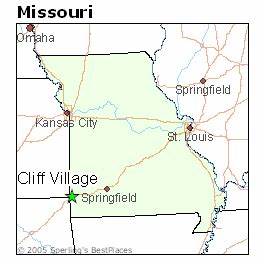
Joe discovered that there was a bearing plant about two miles upstream from Cliff Village. They had buried drums of “Trichloroethylene” in the foundation of their plant.
Commonly used as an industrial degreasing solvent, Trichloroethylene is clear, colorless and non-flammable with a chloroform-like smell and sweet taste. It is thought to cause cardiac arrhythmias and is classified as a carcinogen.
When the foundation cracked, the Trichloroethylene, along with other dangerous contaminants flowed into the river and into the village wells. Some had large concentrations of lead and several had dangerously high levels of Trichloroethylene. It took Joe a while to get the Department of Natural Resources to test the wells.
During his efforts, the people of the town decided to make him Mayor. They thought I give him a little more pull with political leadership. So they gave him the title of the ‘Honorable Joseph T. Blundell’ (Joe smiles).
Joe: One would have thought that having dangerously high levels of Trichloroethylene next to a daycare would have been enough to prompt immediate action, but curiously, it didn’t. What it did was prove to me just how deeply flawed the system has really become. “
“ The Trichloroethylene was 4.8ppb.
For the EPA to legally do anything, it had to be 5ppb.”
Joe: “So I say to this guy, ‘Is this a safe amount for these kids to be drinking the water?’ He said, ‘According to the government it is.’ So I said to him, ‘Can I bottle some of this stuff up to send home for your kids to drink?’ He said, ‘That’s not even funny.’ And I said,
‘No, it’s not.’”
It took Joe two years to get all of the contaminated wells on a ‘boil water’ program. He had assurances from Missouri American Water Company that they were going to run water lines out to Cliff Village in 2005. By 2009, at the time of this interview, there was still no waterline in sight. Children were still bathing in water contaminated with lead and Trichloroethylene. Fortunately, they were no longer drinking the water.
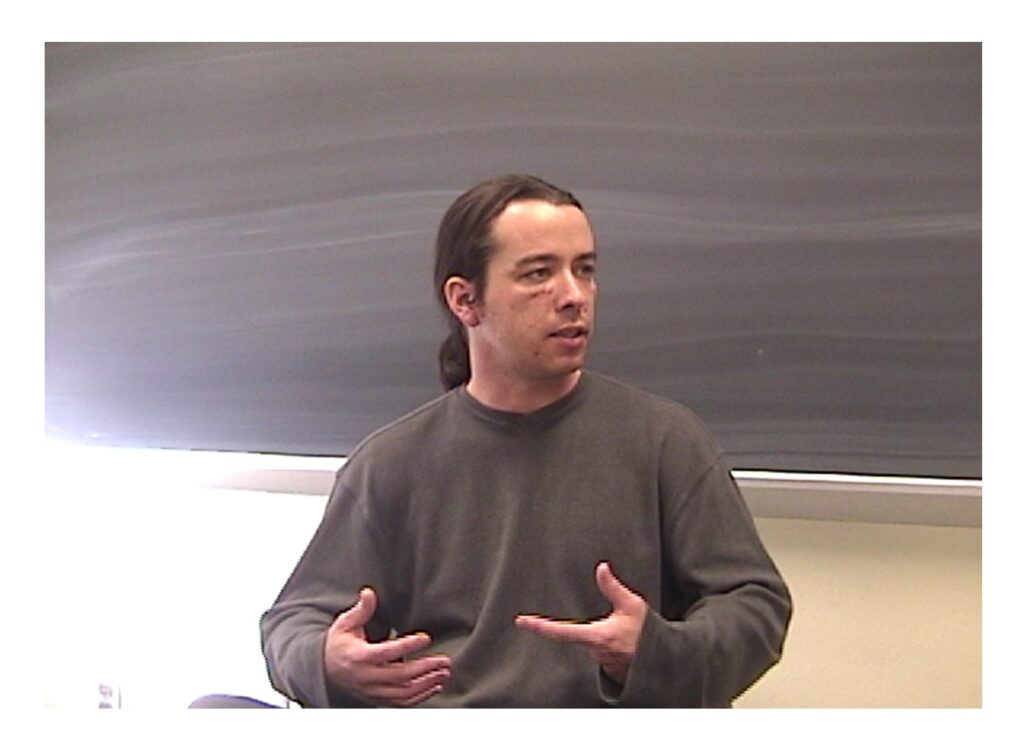
Joe’s City Ordinance
At an August 2009 Village Meeting, Joe presented a bill to legalize medical Cannabis within their township. It was the second such city ordinance for Missouri, with the first actually passing for the city of Columbia.
Joe had no illusion that it would be any more than a public statement. He just wanted to spark a rational discussion for the state. He was frustrated following discussions with representatives who had sponsored similar bills. Apparently the predominantly Republican administration had “pocket vetoed all past attempts’.”
In the statehouse, if a Bill doesn’t get assigned to a committee, it doesn’t get discussed…which means it dies without consideration. That, unfortunately, is the way it is. As you might have guessed, this issue has forever been partisan.
Joe: “When you look at the 2005 Gallup Poll, 78% of Americans are in favor of supporting the legalization of medical marijuana. How is it that a
78% majority in our country is not getting heard?
And our state (Missouri) has the audacity to tell me that growing a flower is illegal while they are pouring gasoline down my throat? Bullshit! I call bullshit. That’s shenanigans. What the heck is going on here? I’m not a car. I do not run on petrochemicals.”
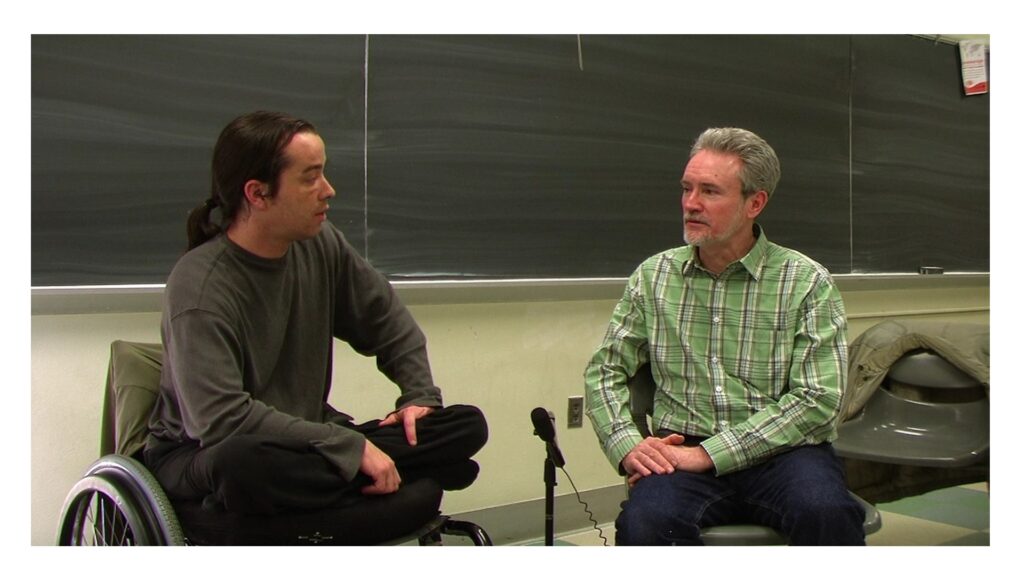
Mark: “So, it sounds to me like Cannabis hasn’t destroyed your life the way that our government has painted the picture, huh?
Joe: “Cannabis has done nothing but enrich my life to a degree that I could not have known under petro-pharmaceuticals. Enriched beyond measure.”
Of course, being a very vocal Cannabis activist in a rural Midwest community (not to mention in an illegal state) can attract the attention of local law enforcement.
Joe: (Joe smiled) “We didn’t use to see a police car – ever – in our Village. But, since passing my ordinance, even amid immense budget cuts, our little thirty-three resident community is the most patrolled in the state of Missouri. Seriously, we’re under constant “threat mentality” now. I have family members who have been harassed recently. There have been some very shady things going on. Apparently, me speaking out for truth and trying to stand up for my rights is the kind of thing that would get me put in my place.”
With all that Joe has been through, the thought that a nontoxic substance would be such a serious issue was difficult for him to fathom. Joe thought that, as an American citizen, he had the right to speak out against injustices without the fear of retribution. Unfortunately, as so many of us have experienced, we’re only given a small measure of freedom. The will of the people and their suffering is often of little importance to the powers-that-be.
What’s really amazing is that, even with all that Joe has endured, all that he’s done and all he continues to do for his family, his career and his community, he has done so while still enduring a level of pain like few of us have ever experienced. And yet, he keeps pushing. He keeps striving for a better future.
* * *
Joe’s life story is one of incredible survival amid terrible tragedy. Despite injury and disability, Joe has persevered, building a business, Sustainable Living Systems and a family, while serving the community that he calls home, there in Cliff Village, Missouri. Joe’s story, in its entirety, can be found on my Cannabis Patient Network Website.
“Cannabis is nontoxic. Cannabis is food. Cannabis is the single most important medicine of the 21st century.”
